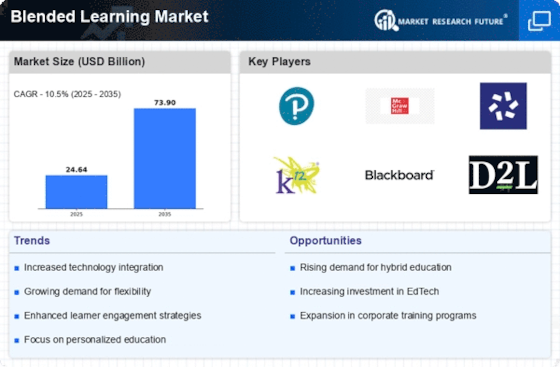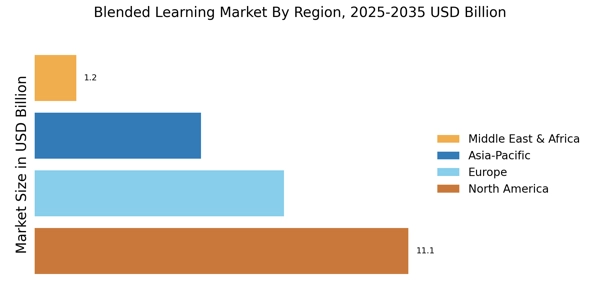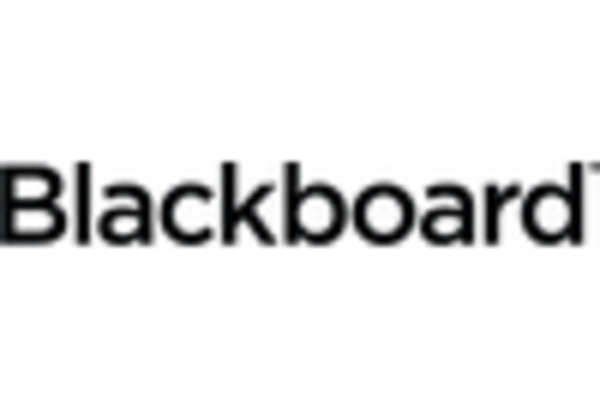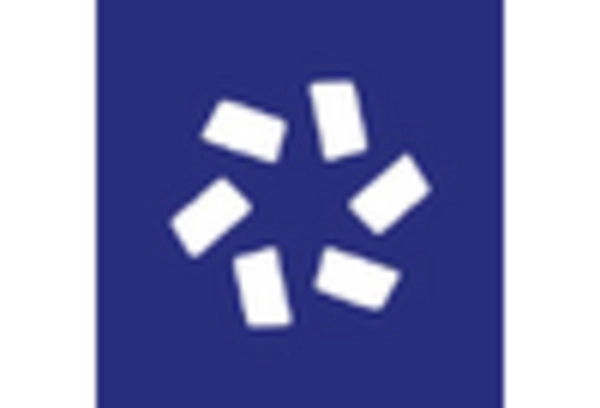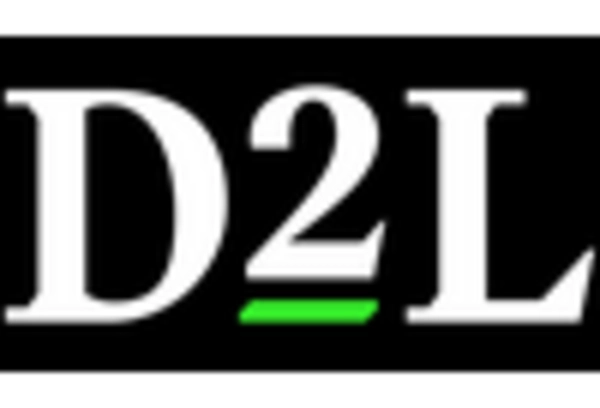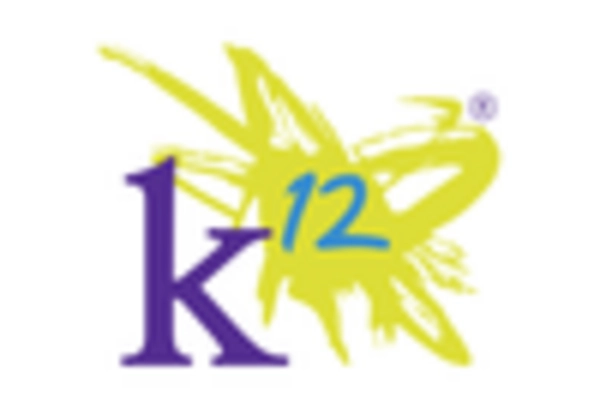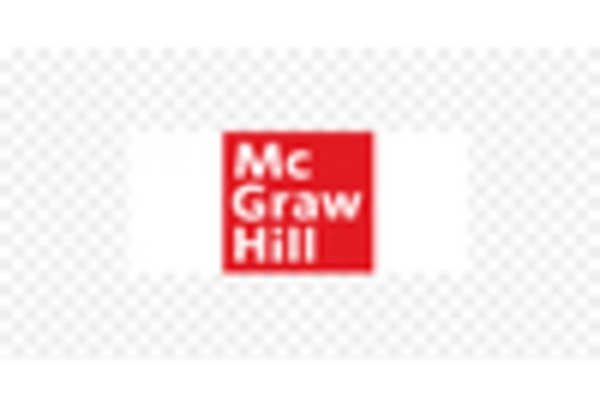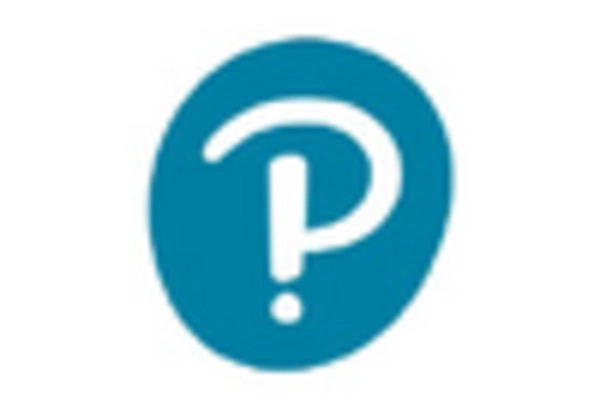Increased Focus on Lifelong Learning
The Blended Learning Market is significantly influenced by the increasing emphasis on lifelong learning. As the job market evolves, professionals are compelled to continuously update their skills to remain competitive. Blended learning provides a flexible framework that accommodates adult learners who may be balancing work and study. Recent statistics indicate that over 60% of adults engage in some form of continuing education, highlighting the necessity for accessible learning options. This trend is prompting educational institutions and organizations to adopt blended learning strategies that cater to the needs of adult learners, thereby expanding the market's reach and potential.
Advancements in Educational Technology
Technological advancements play a pivotal role in shaping the Blended Learning Market. The proliferation of digital tools and platforms enhances the learning experience, making it more interactive and engaging. Innovations such as artificial intelligence, virtual reality, and adaptive learning technologies are increasingly being integrated into blended learning environments. For instance, the market for educational technology is projected to reach USD 404 billion by 2025, reflecting a growing investment in tools that support blended learning. These advancements not only facilitate personalized learning experiences but also enable educators to track student progress more effectively, thereby improving overall educational outcomes.
Rising Demand for Flexible Learning Solutions
The Blended Learning Market is experiencing a notable rise in demand for flexible learning solutions. This trend is largely driven by the need for educational institutions and corporate training programs to adapt to diverse learner needs. As learners increasingly seek options that allow them to balance their studies with personal and professional commitments, blended learning offers a viable solution. According to recent data, approximately 70% of learners express a preference for a mix of online and face-to-face instruction. This shift indicates a significant transformation in educational delivery methods, compelling institutions to innovate and integrate blended learning models into their curricula.
Emphasis on Collaborative Learning Environments
The Blended Learning Market is witnessing a growing emphasis on collaborative learning environments. This approach fosters interaction among learners, encouraging the exchange of ideas and peer-to-peer learning. Educational institutions are increasingly recognizing the value of collaboration in enhancing the learning experience. Research indicates that collaborative learning can lead to a 30% increase in student engagement and retention rates. As a result, blended learning models that incorporate collaborative elements are gaining traction, prompting institutions to design courses that facilitate teamwork and communication among learners. This trend not only enriches the educational experience but also prepares students for the collaborative nature of the modern workplace.
Growing Importance of Data-Driven Decision Making
In the Blended Learning Market, the importance of data-driven decision making is becoming increasingly apparent. Educational institutions and organizations are leveraging data analytics to assess the effectiveness of blended learning programs. By analyzing learner performance and engagement metrics, stakeholders can make informed decisions about curriculum design and instructional strategies. This trend is supported by the fact that institutions utilizing data analytics report a 20% improvement in student outcomes. Consequently, the integration of data analytics into blended learning frameworks is likely to enhance the overall quality of education and training, making it a critical driver in the market.


